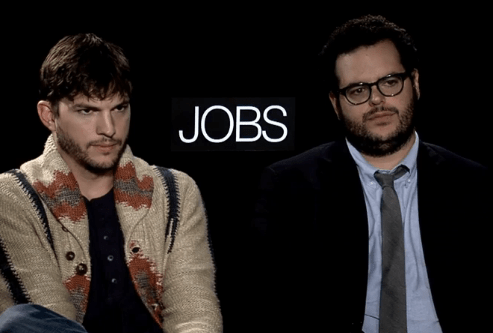On August 16, Steve Jobs biopic “JOBS” will hit theaters nationwide. The movie follows the story of a young Jobs deciding to start Apple, building the world’s first personal computer out of his garage, and going on to lose the company he built only to be asked to take the helm once again, years later.
Ashton Kutcher, who took on the role of Jobs and even ended up in the hospital along the way, sat down with TechCrunch alongside co-star Josh Gad (who plays Steve Wozniak) to discuss the biopic.
“We’re taking on two people who are enormously important, who are still a part of the cultural zeitgeist, one of whom is still living and breathing,” said Gad. “So we didn’t take that lightly.”
For Kutcher, however, his biggest challenge was pleasing both groups of people who knew and interacted with Jobs, the group that loved him and the group that didn’t like him so much.
“He was a polarizing character,” said Kutcher. “He had a 95 percent approval rating from his employees but he would berate somebody for doing something wrong. I wanted to tell that story honestly in a way that both sides said ‘Yeah, that was Steve.'”
Kutcher said that having a lot of friends in the tech world that worked with Jobs helped him better understand the man, and it drove him to honor their love for him while still portraying an honest tale of who he was.
There had been a bit of drama over Steve Wozniak’s refusal to participate or consult on this film, instead being a “tutor” for Aaron Sorkin’s Jobs film. Yet, Kutcher and Gad didn’t express that they felt hindered by that.
“I think we successfully let Woz function the way he wanted him to, which was to be Steve’s conscience,” said Gad. “He is the Jiminy Cricket of the story.”
But outside of the roles, and the movie itself, Kutcher says his big screen turn as Jobs has most certainly made him a more well-rounded investor and advisor.
“The biggest thing I’ve drawn from this that I can share with entrepreneurs is a focus on making this thing so intuitively dumb,” said Kutcher. “A lot of engineers are the most brilliant people you know, and they think it’s easy to figure it out. But it’s easy because they made it. It needs to be so simple that everyone can use it or otherwise it’s not ubiquitous and it’s not accessible.”
